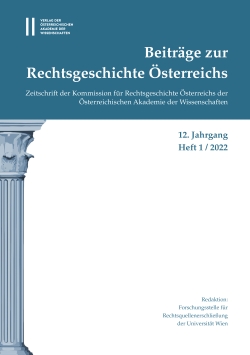
Beiträge zur Rechtsgeschichte Österreichs 12. Jahrgang Heft 1/2022, pp. 5-18, 2022/03/28
In a ‘most supreme’ manuscript letter attached to the October Diploma (1860), Franz Joseph declared that he haddecided to re‐establish the Royal Curia in Pest under the presidency of the High Judge (iudex curiae). On 23 January1861, the Judex Curial Conference began its work under the chairmanship of the newly appointed High Judge,György Apponyi. The Conference was composed of members of the Table of the Seven (Septemviralis Court), prominentlawyers and representatives of the commercial bodies. The members of the Conference thought that it was notenough to restore the Hungarian court system; furthermore, cases should be judged according to Hungarian lawinstead of Austrian law. They had to take into account the existing laws, the customary law, as well as the actualcircumstances created by the Austrian acts and decrees enacted between 1849 and 1861. The result of these deliberationswas the Provisional Judicial Regulations, adopted by both Houses of the Parliament in the summer of 1861.After being approved by the King, the Curia declared that the Provisional Judicial Regulations should be followed asa permanent directive until further legislation was enacted. The Provisional Judicial Regulations covered amongothers civil (private) law and civil procedure, criminal law and criminal procedure and bills of exchange law.
Keywords: Hungary;Judex Curial Conference 1861;Provisional Judicial Regulations